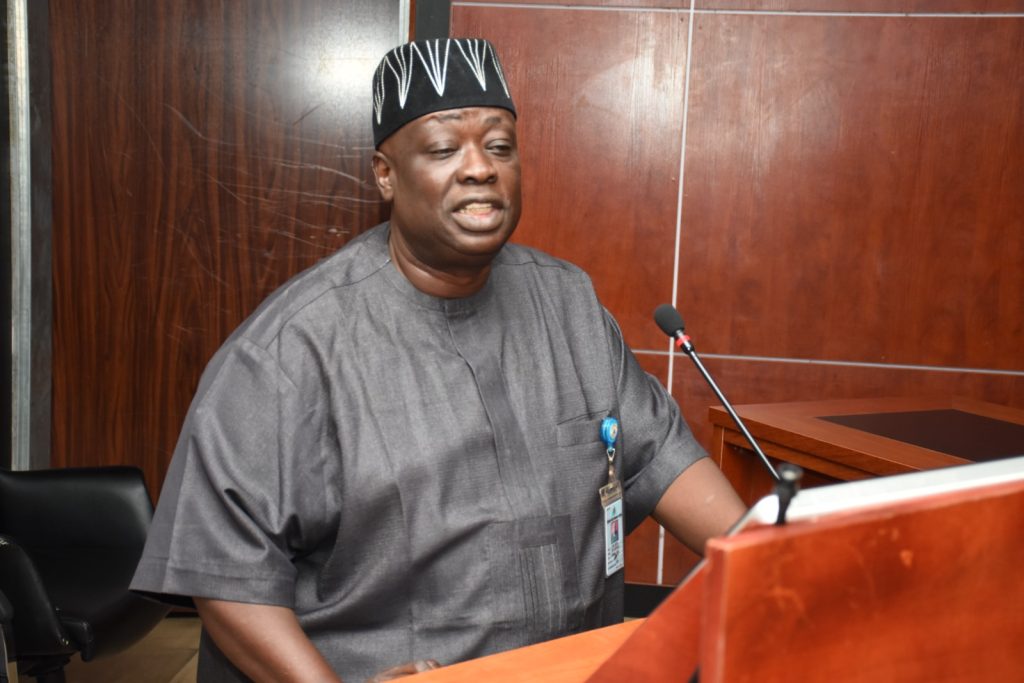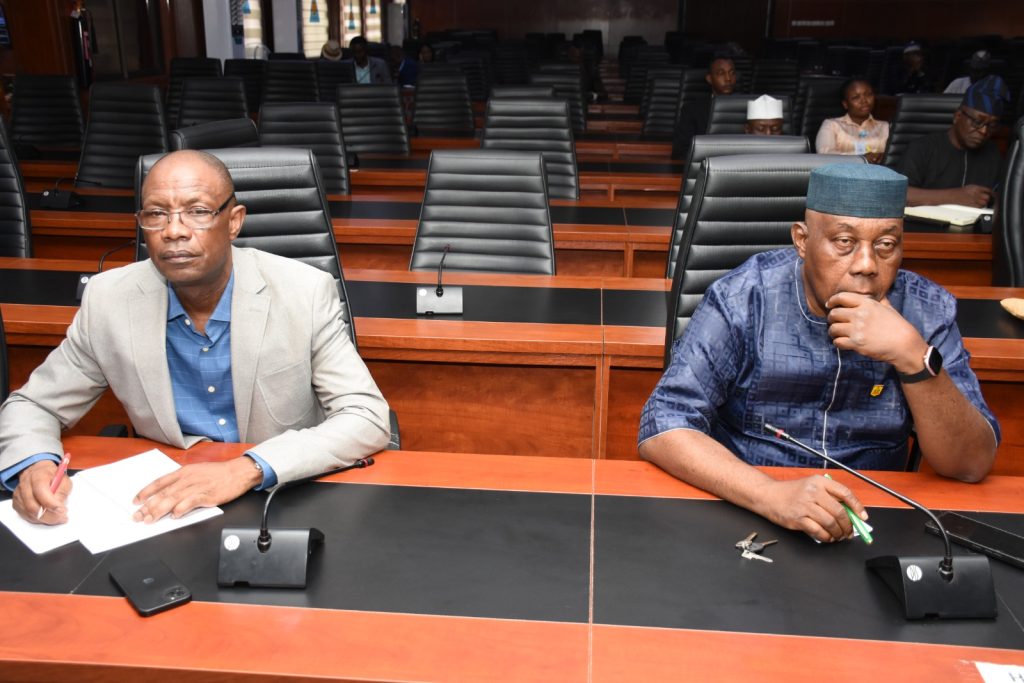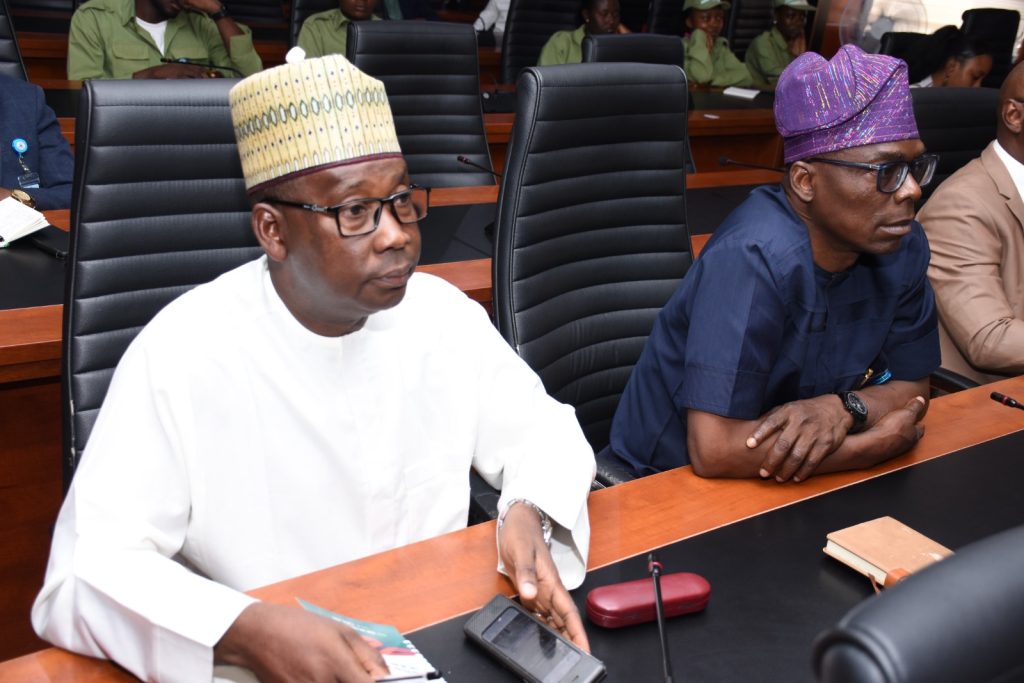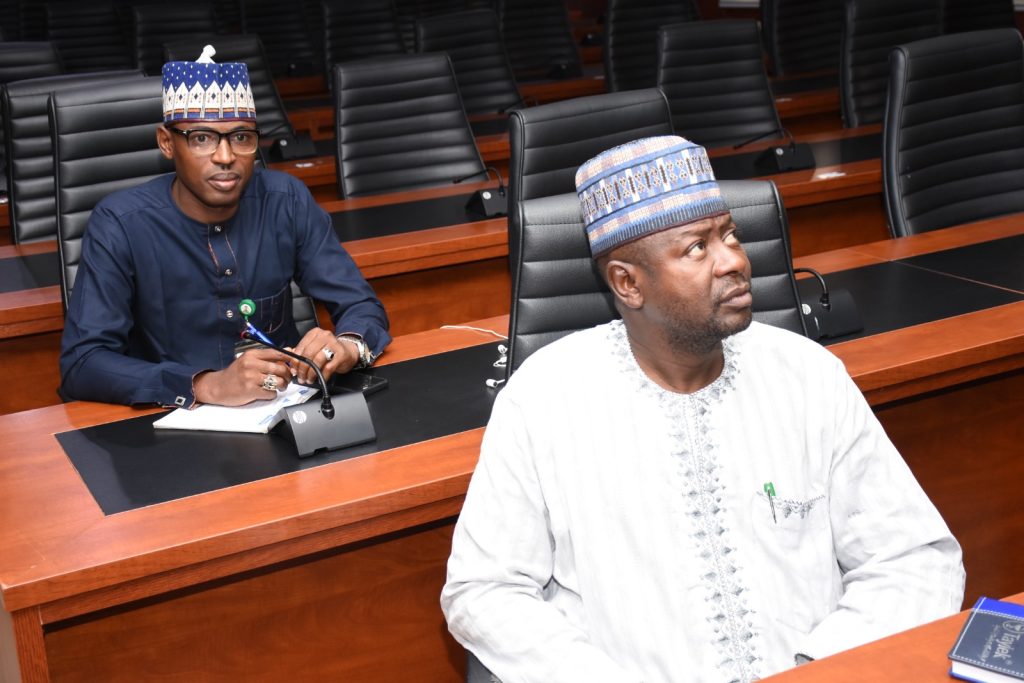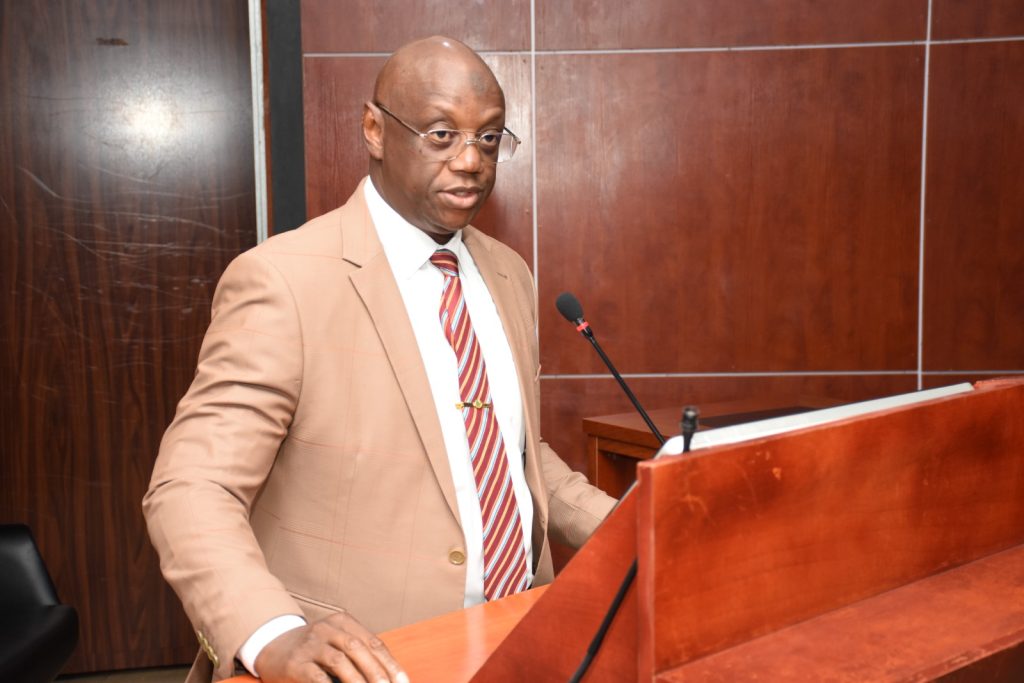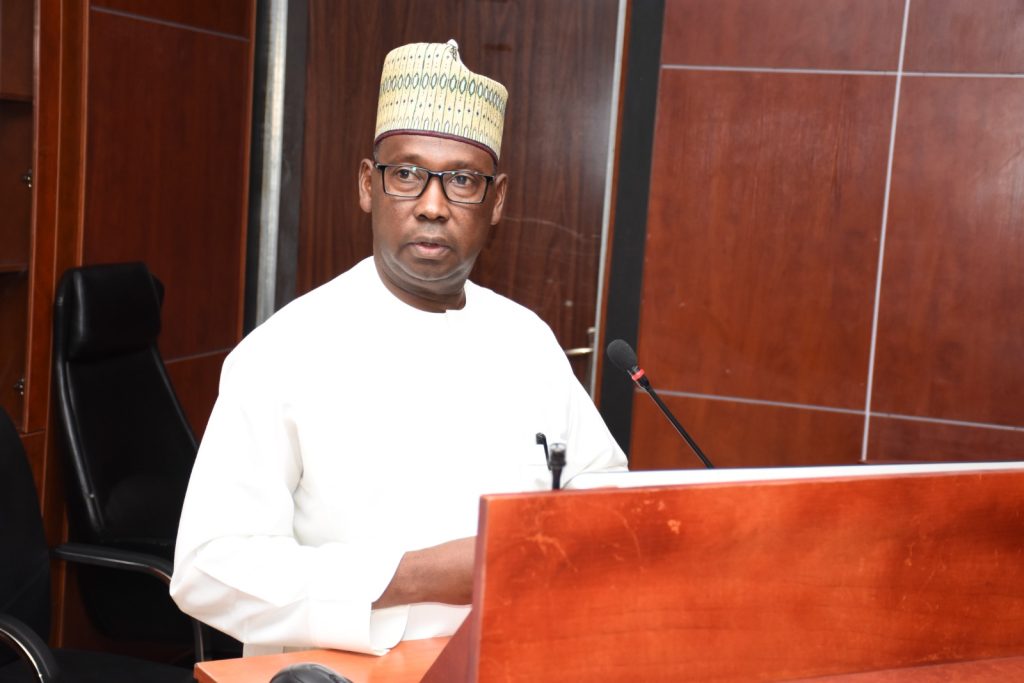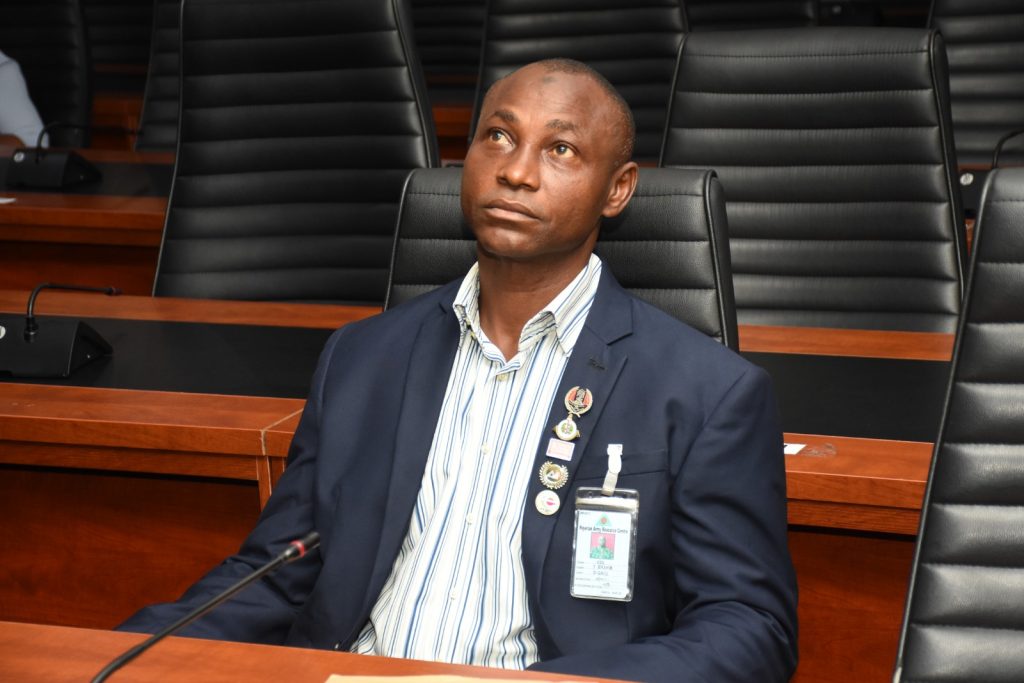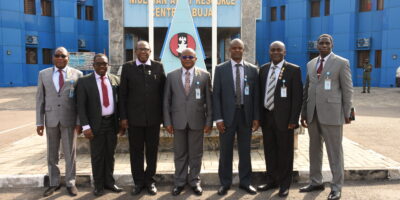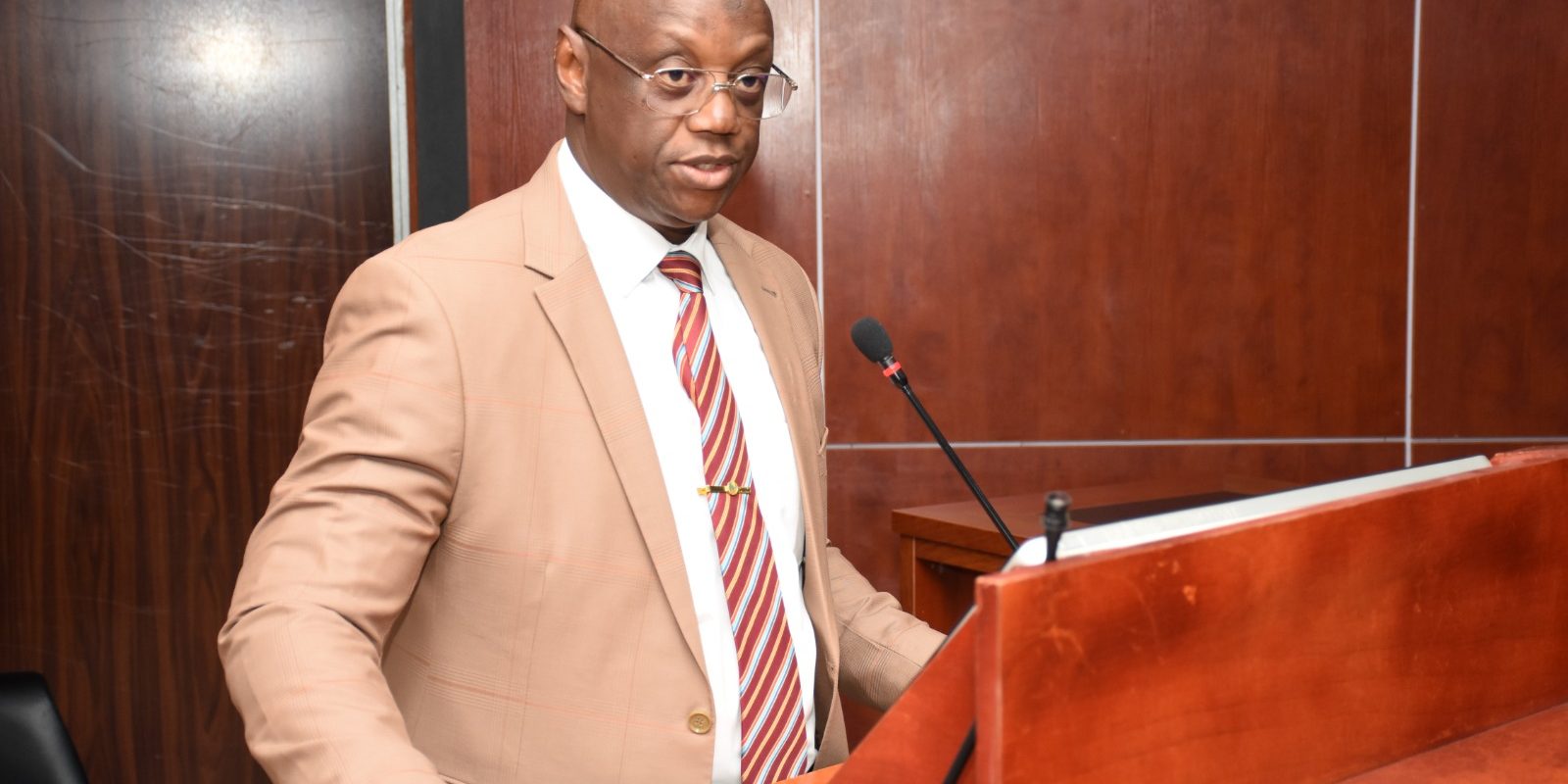Nigerian Army Resource Centre (NARC) Weekly Subject Experts’ Presentation was held at Hall C, TY Buratai Block, Abuja. There were three presentations made by the Subject Experts on Southern Africa , Middle East and North Africa and Turkey
The first presentation was made by Col OR Akerele (Rtd) Subject experts on Southern Africa Centered his presentation on how, The National Council For Higher Education Appeals To All Stakeholders, Institutions And Civil Society Organisations To Promote Ethical And Legitimate Practices In The Award Of Honorary Doctorate Degrees And Professorship. Conferment is the act of giving or bestowing something such as a title, honour or gift to someone. It signifies the act of formally granting of presenting something e.g. the conferment of honorary doctorate, a prestigious award or rights and privileges.
In his analysis and lessons for Nigeria, Col OR Akerele (Rtd) pointed out that, In Nigeria, the conferment of honorary degree is a prestigious recognition given to individuals for their significant contribution to society, culture scholarship, science or act and is a way to acknowledge and honour achievements. Honorary degree in Nigeria is a title awarded by a university or institution to recognise someone’s outstanding accomplishment and contributions, rather than being earned through academic study. At a time in Nigeria, the President National Union of Road Transport Workers was referred to as a “Doctor”. In the same vein, a popular magician and politician was also referred to as a “Professor” which were embarrassing to the academic community and the nation at large.
It therefore became necessary for relevant stakeholder’s to spell new guidelines for the award and use of Doctorate and Professorship titles in Nigeria. These titles acknowledge leadership and impact, especially in a field of study or society in general. Honorary degree in Nigeria are typically doctorates such as Doctor of Laws (LLD), Doctor of Letters (Lit D), Doctor of Science (DSc) or Doctor of Public Administration (Honorius Causa). Universities and other institutions of higher learning in Nigeria, like the University of Nigeria, Bowen University, Ekiti State University, University of Lagos, Obafemi Awolowo University, Afe Babalola University etc have the authority to confer honorary degrees in Nigeria.Nomination for these degrees are usually made by a committee within the University such as the Senate Committee on Honorary Awards, which reviews and recommend candidates to the university Governing Council. Notable individuals like Ngozi Okojo Iweala, Shek Sharif Ibrahim Sule, Nyeson Wike, Chief Rasaq Okoya, Gov Ademola Adeleke, Gen AB Dambazzau and Gen TY Danjuma, Buratai and Gowon have been honoured as such at one time or the other.
He recommended that, The Senate and Governing Councils of Nigerian universities and higher institutions should immediately review the guidelines and eligibility criteria for the award of doctorate degrees and professorship in Nigeria.
The second presentation was made by Brig Gen AR Bello Subject experts on Middle East focused his presentation on how, Middle East Embraces Digital Agriculture Revolution: How New AI, IOT And Smart Irrigation Are Shaping The Future Of Israel, Saudi Arabia And Morocco. On 2 April 2025, The Travel and Tour World News reported that the Middle East has embraced digital Agriculture, revolutionizing how AI, IoT, and SMART irrigation are shaping the future for countries like Israel, Saudi Arabia and Morrocco. In a region marked by vast deserts, scarce water resources, rising temperatures, and ongoing conflicts, countries like Israel, Saudi Arabia, Morocco, and the UAE are turning to innovative technologies to secure their agricultural future. With climate change doubling temperature increases in the Middle East compared to global averages, the agricultural sector faces severe risks, including disrupted crop cycles, increased droughts, and pest outbreaks. Amid these pressures, digital farming is emerging as a vital solution. Technologies such as Artificial Intelligence (AI), Internet of Things (IoT) sensors, smart irrigation systems, satellite imagery, and drones are transforming farming practices, improving efficiency, and conserving water.
IoT sensors now allow real-time monitoring of soil and plant health, helping optimize irrigation systems and reduce waste. Smart irrigation adjusts water delivery to specific crop needs, minimizing nutrient leaching. Drones and satellites provide detailed crop analysis for proactive management, while AI processes large datasets to improve decision-making and enhance productivity.
In his analysis and lessons for Nigeria, Brig Gen AR Bello stressed that, In Nigeria, pilot programs such as Hello Tractor have shown how IoT can track equipment usage and enhance mechanization. Similarly, smart irrigation systems use data from weather forecasts, soil sensors, and AI algorithms to deliver the right amount of water at the right time. This ensures that crops receive sufficient hydration without wasting water, which is particularly crucial in Nigeria’s arid and semi-arid regions. Traditional irrigation methods, such as flood irrigation, often lead to waterlogging and inefficient use. In contrast, smart irrigation systems, including drip and sprinkler irrigation, can reduce water usage by 55% while improving crop yields (FAO, 2023). Hence, the adoption of digital agriculture in Nigeria offers numerous benefits. First, it significantly boosts crop productivity and efficiency by enabling precision farming, reducing waste, and optimizing resource use. Second, it can lower operational costs by minimizing manual labor and improving input utilization. Third, digital tools can enhance food security by ensuring timely interventions, disease control, and efficient supply chains. Additionally, digital agriculture can create new job opportunities in agri-tech and support services, contributing to economic diversification. It also facilitates evidence-based policymaking through accurate data collection and analysis. Despite its potential, the implementation of digital agriculture in Nigeria faces several challenges. One major issue is inadequate digital infrastructure, particularly in rural areas where farming predominates. Limited internet access, erratic power supply, and high costs of digital devices hinder adoption. Furthermore, many farmers lack digital literacy, making it difficult for them to use smart tools effectively. Financial constraints and limited government support also pose barriers. According to Ndukwe (2023), “Without deliberate investments and policy support, digital agriculture may remain out of reach for the average Nigerian farmer.”
He recommended that, The Federal Ministry of Agriculture should establish a nationwide digital agriculture policy and allocate dedicated funding for smart farming projects.
The third presentation was made by Brig Gen S Musa Subject experts on North Africa and Turkey focused his presentation on how, Egypt Acts to Combat Mass Student Absenteeism during and after Holidays. Arab Times Newspaper report of 5 April 2025 reported that ‘’many countries are working to enhance their education systems and stay in line with educational advancements. But the Ministry of Education in Egypt is still addressing the issue of widespread student absenteeism before and after official holidays and vacations, a trend that has become more common in recent years and negatively impacts students’ academic performance and leads to financial and educational inefficiencies. Educational sources have revealed that authorities are actively working on finding solutions to this issue and aims to address it in a way that reduces its impact particularly as it affects students’ academic performance and contributes to both financial and educational waste within the system. To tackle the problem, the Ministry plans to conduct a comprehensive study of student absenteeism and review existing regulations and systems currently in place in schools to find the most effective methods to address the problem. The current regulations specify that a student will be expelled after 16 days of unexcused absences or 26 days with an excuse. The system provides a warning structure, a first warning after 5 days of absence, a second warning after 10 days, and a third warning after 15 days, at which point the guardian must sign the notification.
Additionally, penalties are imposed on students who are frequently absent. these penalties start with or involve grade deductions, starting at 0.5% deduction from the final grades for all subjects for students who receive the first warning, rising to 1% after the second warning, and increasing to 2% after the third warning.
In his analysis and lessons for Nigeria, Brig Gen S Musa point out that, A recent survey in Nigeria – tagged “2015 Education Data Survey” undertaken by the National Population Commission in conjunction with USAID, Universal Basic Education Commission, the Federal Ministry of Education and the National Bureau of Statistics revealed the following: That in urban areas of Nigeria, 74% of children of primary school age attend school, compared to 57% in rural areas; the primary net attendance is highest in the South East region (81%) compared to the North West region (43%);only 49% of youth ages 12-17 attend secondary school while 51% of males ages 12-17 attend school, compared to 46% of females; the rate of primary school completion decreased from 88% in 2003 to 69% in 2015 and only 10% of the school population aged 15 years old and above have post-secondary education. A look at some of the statistics in 2019 shows that this trend has not changed. It is apparent that when student absenteeism is excessive, it impacts negatively on learning, truncates the teaching process leading to a decline in overall student’s academic performance (Triado-Ivern, Aparicio-Chueca, Elasri-Ejjaberi, Maestro-Yarza, Bernardo & Presas Maynegre, 2018).
Students who attend school regularly are found to have better teacher-learner interaction, problem solving skills, peer relationships and language development compared to absentees (Rissanen, 2018). In most cases prolonged student absenteeism discourages students from pursuing further education and finally leads to school drop-out (Hawken, Wayman, Wright, Fleming, & Rolfe, 2018; Peguero, Merrin, Hong& Johnson, 2019). It is also evident that teachers who spend time to review notes or re-take past lessons for the benefits of absentee students are often fatigue and it takes away needed time from students who already attend classes regularly. Thus, absenteeism do not only have implications for absentees’ academic outcomes, it truncates in—class planning of teachers and demotivates other students (Oluremi, 2013).
He recommended that, States, Local Government and schools management should devotedly and consistently identify students at-risk of chronic absenteeism and start providing targeted support to them such as mentoring and counseling which can help improve attendance and assist them to succeed academically.
